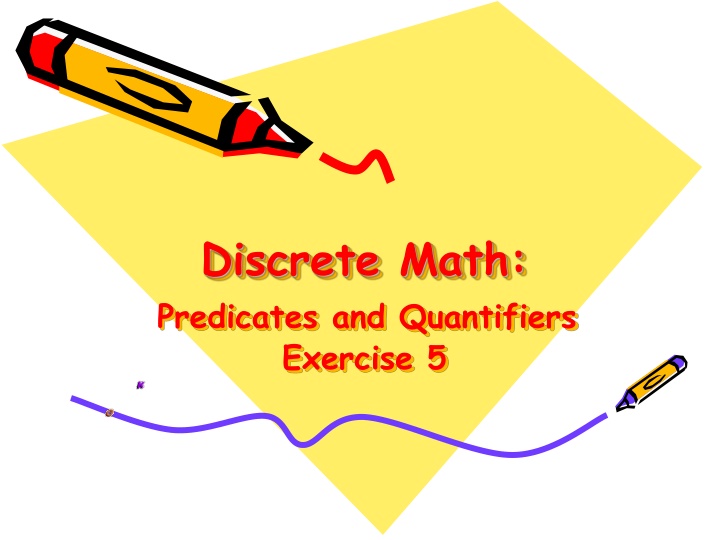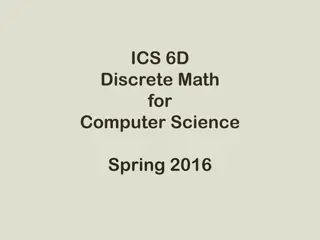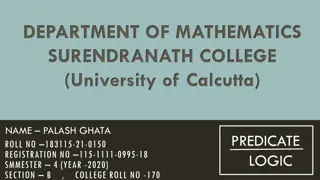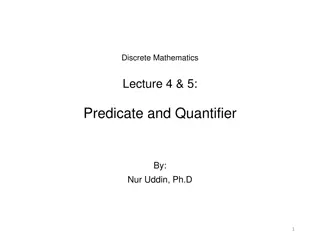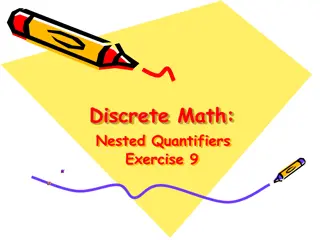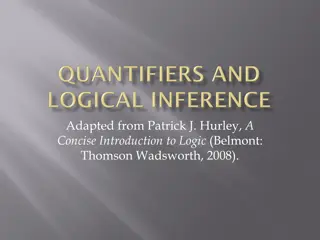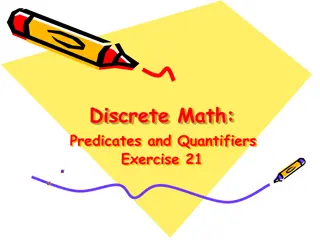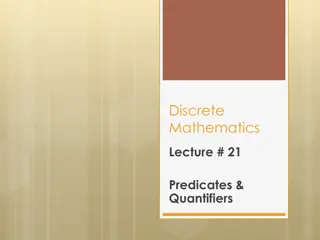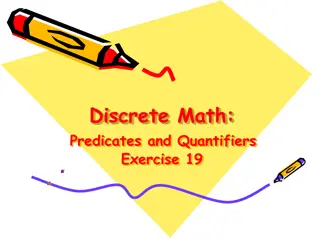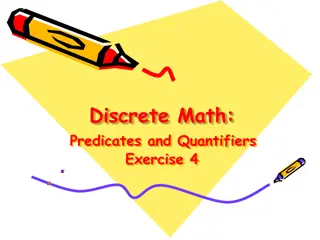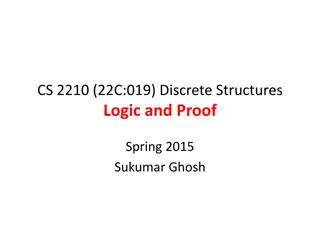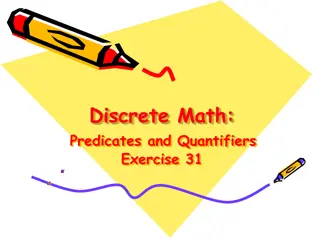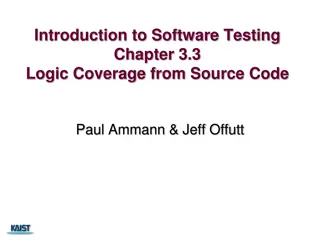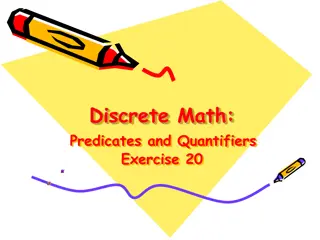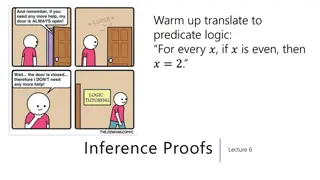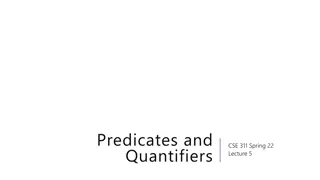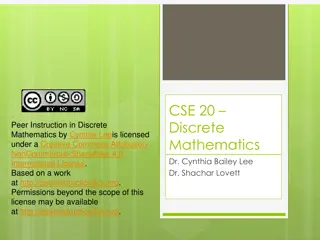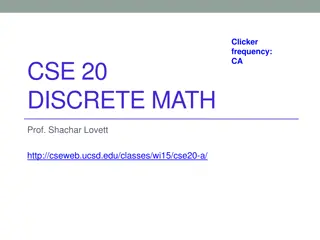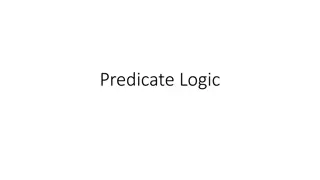Utilizing Predicates and Quantifiers in Discrete Math
Expressing statements using predicates, quantifiers, and logical connectives in the context of language capabilities of students at a school. The sentences involve students speaking Russian and knowing C++. Solutions and explanations provided for each scenario, showcasing the application of universal and existential quantifiers, as well as logical equivalences.
Download Presentation

Please find below an Image/Link to download the presentation.
The content on the website is provided AS IS for your information and personal use only. It may not be sold, licensed, or shared on other websites without obtaining consent from the author.If you encounter any issues during the download, it is possible that the publisher has removed the file from their server.
You are allowed to download the files provided on this website for personal or commercial use, subject to the condition that they are used lawfully. All files are the property of their respective owners.
The content on the website is provided AS IS for your information and personal use only. It may not be sold, licensed, or shared on other websites without obtaining consent from the author.
E N D
Presentation Transcript
Discrete Math: Predicates and Quantifiers Exercise 5
Exercise Let P (x) be the statement x can speak Russian and let Q(x) be the statement x knows the computer language C++. Express each of these sentences in terms of P (x), Q(x), quantifiers, and logical connectives. The domain for quantifiers consists of all students at your school. a) There is a student at your school who can speak Russian and who knows C++. b) There is a student at your school who can speak Russian but who doesn t know C++. c) Every student at your school either can speak Russian or knows C++. d) No student at your school can speak Russian or knows C++.
Solution a) We assume that this sentence is asserting that the same person has both talents. Therefore we can write x(P(x) Q(x)). b) Since "but" really means the same thing as "and" logically, this is x (P(x) Q(x)) c) This time we are making a universal statement: x(P(x) Q(x)) d) This sentence is asserting the nonexistence of anyone with either talent, so we could write it as x(P(x) Q(x)). Alternatively, we can think of this as asserting that everyone fails to have either of these talents, and we obtain the logically equivalent answer ' 'x (P(x) Q(x)). Failing to have either talent is equivalent to having neither talent (by De Morgan's law), so we can also write this as x(( P(x)) ( Q(x)). Note that it would not be correct to write x(( P(x)) ( Q(x)) nor to write ' 'x (P(x) Q(x)).
References Discrete Mathematics and Its Applications, McGraw-Hill; 7th edition (June 26, 2006). Kenneth Rosen Discrete Mathematics An Open Introduction, 2nd edition. Oscar Le in A Short Course in Discrete Mathematics, 01 Dec 2004, Edward Bender & S. Gill Williamson
